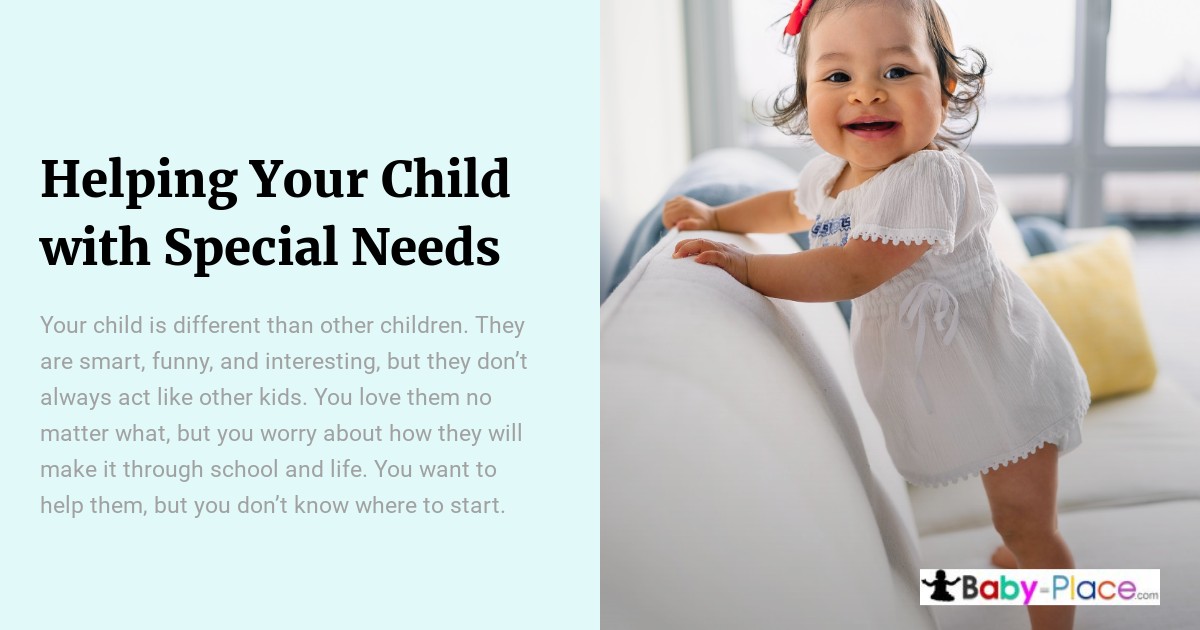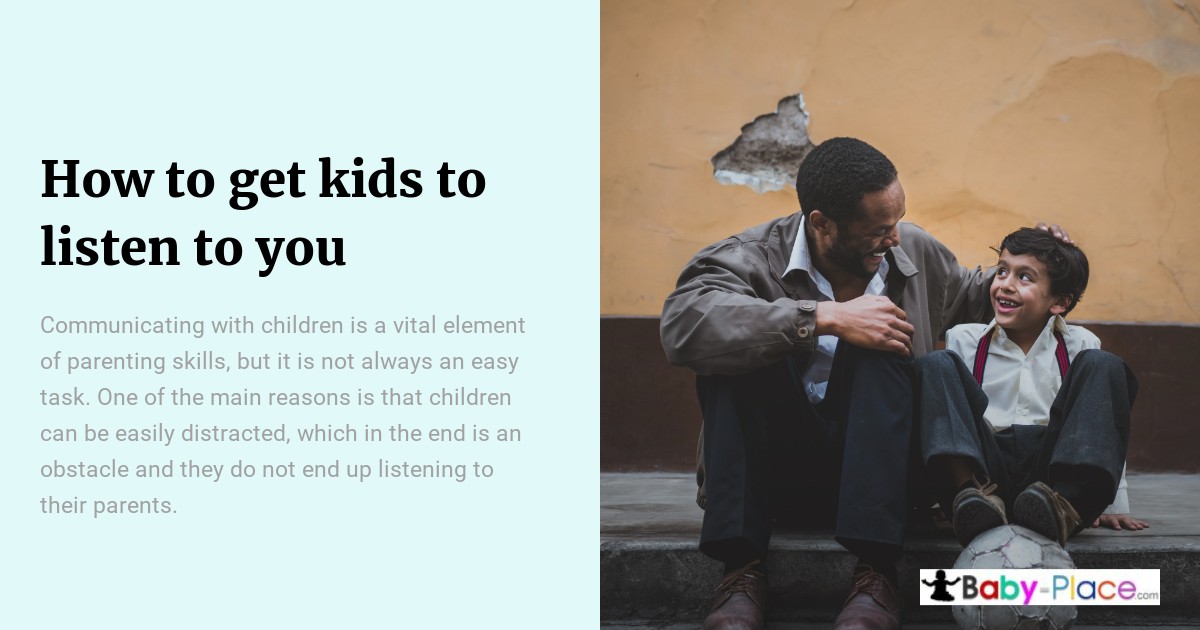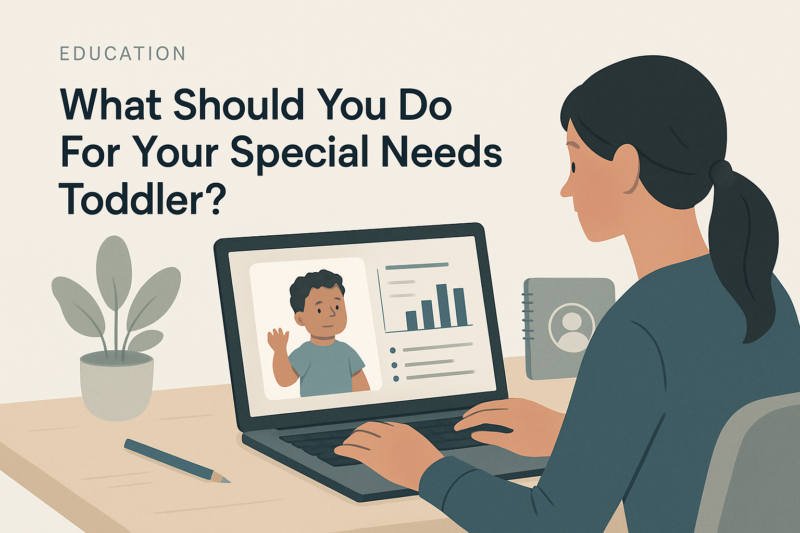
Ideally, everyone wants perfect babies and children. Unfortunately, all children have lots of challenges. Identifying what those challenges are at an early age will help your child live their best life.
The earlier a learning disability is identified, the earlier appropriate interventions can be implemented to help your child. There are several ways to tell if your baby has a learning disability. One way is to look at your baby’s development.
If your baby is not reaching developmental milestones as expected, he or she may have a learning disability.
You can also have your baby evaluated by a pediatrician or specialist to see if he or she has a learning disability.
If you are concerned about your baby’s development, don’t hesitate to talk to your doctor. Early identification and intervention are vital in helping children with learning disabilities succeed.
Main Milestones Up Until 2 Years Old
Remember that these milestones are just a guide. If a baby misses one or all, it doesn’t mean that there is a problem. However, if you have any concerns, the best thing to do is contact your pediatrician or healthcare center.
-
Birth to 3 months:
- Smiles in response to an adult smiling
- Makes cooing noises as if communicating
- Lifts head briefly when on stomach
- Follows an object with eyes from left to right
-
4 to 6 months:
- Makes gurgling sounds as well as cooing
- Can lift head and chest while on stomach
- Rolls over from back to front and front to back
- Reaches for objects with hands
-
7 to 12 months:
- Sits up without support from an adult or other item
- Start trying to crawl
- Stands while holding on to something
- Babbles and imitates speech sounds
-
12 to 18 months:
- Walks with assistance
- Says a few words, such as Mommy
- Points to objects that he wants
- Puts objects in a container and takes them out
-
18 to 24 months:
- Walks confidently
- Says several words and starts forming very basic sentences
- Builds a tower with 4+ blocks
- Imitates simple actions in play
The early signs of a learning disability
No one sign can tell you for sure if your baby has a learning disability. However, some early signs may indicate that your child has difficulty learning. If your baby is not meeting developmental milestones or seems to be struggling with basic skills like speech or motor skills, they may have a learning disability.
You should also be looking for behavioral problems, such as difficulty controlling emotions or acting out. If you think your child may have a learning disability, it is important to get them evaluated by a professional. Early intervention is key in helping children with learning disabilities reach their full potential.
Developmental delays
If you are concerned that your baby may have a learning disability, it is important to seek help from a professional. Parents spend the most time with their kids and are the first to notice something wrong.
It is also important to remember that every child develops at their own pace, so it is not always easy to determine if a child has a learning disability. However, if you have any concerns, it is important to seek help from a professional.
Problems with social interaction
There are a few signs that may indicate that your child has a problem with communication and learning, including:
- Having difficulty following basic instructions
- Taking a long time to learn how to talk
- Struggling with vocabulary or grammar
- Showing a lack of interest in playing with other children
If you suspect that your child might have a learning disability, don’t wait to get help. Early intervention is key in helping your child overcome any difficulties they may be experiencing. There are a number of treatments and therapies that can help children with learning disabilities, so don’t hesitate to seek help if you think your child needs it.
Frequently Asked Questions:
What are some early signs that my baby might have a learning disability?
Early signs of a learning disability may include not meeting developmental milestones, struggling with basic skills like speech or motor skills, behavioral problems such as difficulty controlling emotions, and problems with social interaction like difficulty following instructions or showing a lack of interest in playing with other children.
Why is early identification of a learning disability important?
Early identification of a learning disability is crucial because it allows for early intervention, which can help your child receive the necessary support and therapies to succeed. The sooner a learning disability is identified, the better the outcomes for the child's development and learning.
What should I do if I am concerned about my baby's development?
If you have any concerns about your baby's development, the best thing to do is to contact your pediatrician or healthcare center. They can evaluate your baby and determine if there are any issues that need to be addressed. Early intervention is key to helping children with learning disabilities.
What are some developmental milestones for babies up to 2 years old?
Developmental milestones for babies up to 2 years old include smiling in response to an adult (birth to 3 months), rolling over (4 to 6 months), sitting up without support (7 to 12 months), walking with assistance (12 to 18 months), and walking confidently and forming basic sentences (18 to 24 months). These milestones are just a guide, and missing one doesn't necessarily indicate a problem.
How can I tell if my baby is having problems with social interaction?
Signs that your baby may have problems with social interaction include difficulty following basic instructions, taking a long time to learn how to talk, struggling with vocabulary or grammar, and showing a lack of interest in playing with other children. If you notice these signs, it's important to seek professional help.



